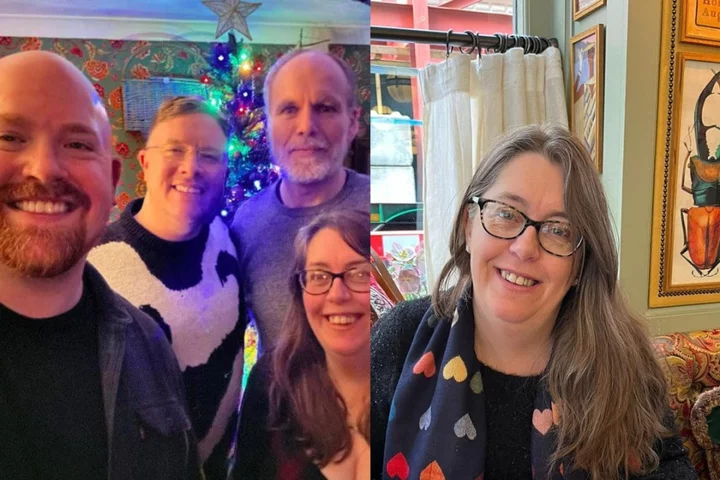
Woman, 50, to become a surrogate mother for same-sex couple
A woman is going to be a surrogate mother for the fourth time at the age of 50, even though the birth could be the ‘hardest yet’. Dawn Allen, a surrogate applications and agreement co-ordinator for Surrogacy UK, who lives in Derbyshire with her husband, Matthew Allen, 51, an archivist’s assistant, and has two of her own children, Alex, 17, and Sam, 27, offered to become a surrogate for the first time at the age of 36 after being inspired by a documentary over 20 years ago. Dawn has had three surrogate babies and three unsuccessful attempts, one of which ended in miscarriage, but all of her births have been “moments that will stick with (her) forever”. She was unsure if she was going to do it again until she met a friendly couple, Nicky Spence, 39, an operatic tenor and broadcaster, and Dylan Perez, 33, a classical pianist, through Surrogacy UK. Dawn makes sure her husband is on board with the surrogacies and bonds with the intended parents, as he is “as much a part of this as (she is)”, and has to “support” her through the pregnancy. She is not too worried about her age affecting her likelihood of becoming pregnant and has said she “wouldn’t have offered if I didn’t feel physically able” but is aware that the birth could be the hardest yet. “I know it’s going to be hard because I’m older now, but, at the end of the day, nine months out of my life is nothing when you’ve got a chance to give parents a lifetime of happiness,” Dawn said. Dawn was first drawn to becoming a surrogate more than 20 years ago, explaining: “I watched a documentary in the late 90s all about surrogacy and I thought, one day I’m going (to) do that. “I met Matthew, my husband, 23 years ago, and about a month into dating I said, ‘Oh, by the way, one day I’m going to be a surrogate’ – he looked at me like it was completely crazy.” Before Dawn became a surrogate, she had two sons of her own. She said: “About 18 months after having Alex, I brought the subject up about surrogacy, and we looked into it.” In 2008, Dawn joined Surrogacy UK, the UK’s leading not-for-profit surrogacy organisation, and soon began to use their online platform for surrogates and intended parents, as well as going to face-to-face socials, to see if she could find a couple she connected with. Dawn explained: “It’s just about meeting up with people and finding people that you connect with and have things in common with. “You then have a getting-to-know phase, where you hang out with the intended parents for about three months, and then you can make the decision if you’d like to proceed.” Dawn’s husband was very supportive of her decision, and she thinks it is important he connects with the intended parents too. She said: “Matthew is my main support – he’s as much a part of this as I am. “He’s the one that’s got to support me, as well as my children, so it’s important to me that they all get on with the people we decide to help.” A year after signing up to Surrogacy UK, in 2009, Dawn had an unsuccessful surrogacy as the embryos were of poor quality, but in 2012 she had a surrogate baby for a same-sex couple, using her own egg. An attempt to help a third couple in 2013 failed, but in 2015 she gave birth to a daughter for a same-sex couple – the same year, she began working for Surrogacy UK as a surrogate applications and agreement co-ordinator as she wanted to help other surrogates and intended parents. In 2017 Dawn miscarried a surrogate baby, but that couple has since had two children with another surrogate, and in 2021 she had a surrogate baby for another same-sex couple. Dawn explained how she has felt after giving birth: “I think, for me, it’s one of those moments that will stick with me forever. “You’re seeing people that you’ve become really good friends with, become parents, and you’re there in the moment they get to look at their child for the first time and hold them for the first time,” she said. “It was really, really emotional – there were lots of tears every time.” Dawn never felt it difficult to give the baby to the intended parents, explaining: “It was very clear in my head that baby wasn’t mine – it was the intended parents’ pregnancy, it was their baby. “I think you bond with your intended parents more than the baby.” Now, aged 50, Dawn is hoping to become a surrogate again, after meeting same-sex couple Nicky Spence and Dylan Perez on Surrogacy UK’s platform in November 2022. She explained: “I hadn’t made my mind up 100% if I was going to do it again, but I started chatting to Nicky and I asked my husband if he’d like to come along to a social online to meet them. “They were both lovely and my husband thought they were really nice too, so I made them the offer to start the official getting-to-know period the next day.” Nicky added: “We feel so lucky to have become friends with Dawn through Surrogacy UK and when she offered to help complete our family we couldn’t believe it. “We feel in very safe hands as she’s the kindest and most experienced surrogate you could wish for. ” Dawn did not have any doubts about her age affecting the likelihood of her getting pregnant. “So luckily, we’re using the same clinic that I used in my last journey, so they know my medical history,” she said. “Yes, I’m a lot older now, but after all the checks and tests they’ve done, they’re happy with me from a medical viewpoint. “I wouldn’t have offered if I didn’t feel physically able.” After doing some background digging on the future fathers, Dawn discovered that Nicky is an opera singer and broadcaster and his husband, Dylan, is a classical pianist. Dawn’s last surrogate baby was Luca, who was also for someone in the public eye – Aled Haydn Jones, the head of BBC Radio 1, and his partner, Emile Doxey. She said: “I have been teased about I only do celebrities now. But I had no idea that they were quite well known – I just knew Dylan played the piano and Nicky was a singer. “Nicky has performed with Shirley Bassey and lots of other people.” From November 2022 to February 2023, Dawn, her husband and the two intended parents have been getting to know each other. Dawn said: “We hang out all the time, they come and stay at our house or we meet up for meals, we’ve even been to Berlin with them and ended up in a bierkeller.” I think the pressure comes from, we want it as much as they do Dawn Allen In January 2023 they drew up an agreement regarding the pregnancy and the birth, and everyone was happy to proceed. Now, embryos are being created, using the intended parents’ family member’s eggs, and Dawn is hoping to get pregnant in the next few months. Dawn said: “I’m feeling really positive, there’s no pressure from them at all, but I do sometimes put a bit of pressure on myself because I really want to give them a baby. “I think the pressure comes from, we want it as much as they do.” Dawn thinks it is unlikely that she will have another surrogacy, saying: “I think this has probably got to be it with my age. “I think the only way I could do it was if we got pregnant really quickly this time around, and Nicky and Dylan wanted the baby to have a sibling more or less straight away.” Read More ‘You always feel like you’ve done something wrong’: Why UK surrogacy laws need a ‘real overhaul’ Children born via surrogacy or egg or sperm donation ‘should be told when young’ Tom Daley unveils photographs of newborn son Phoenix Rose: ‘He’s just perfect’ Charity boss speaks out over ‘traumatic’ encounter with royal aide Ukraine war’s heaviest fight rages in east - follow live
1970-01-01 08:00
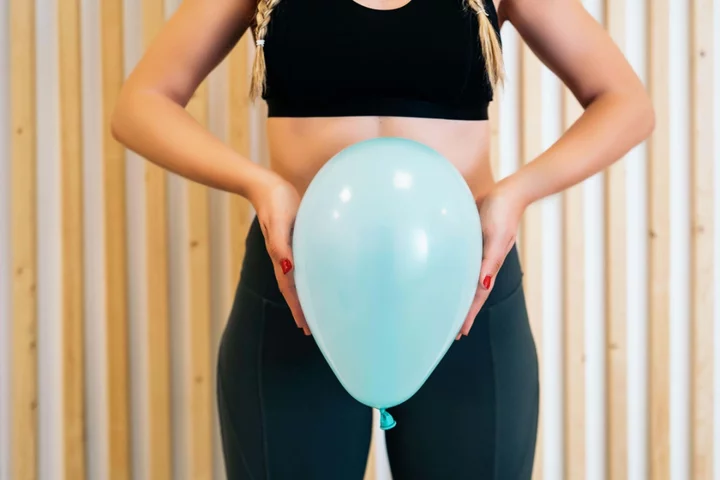
Festival founder hopes to help tackle women’s health taboos
Pelvic floor problems and periods will feature as topics for discussion alongside live music, food and drinks at a festival with a difference this summer. Surgeon Julie Cornish, founder of the Everywoman Festival due to take place in Cardiff next month, said she believes it is the first event of its nature to take place in the UK covering such a wide range of women’s health topics. The mother of three, who specialises in pelvic problems after childbirth, said she hoped to create a relaxed and informal setting where typically taboo subjects can be tackled. She said: “The concept of it is as much about prevention and education, as it is about signposting to women with problems. “I’m not aiming this just at women who’ve got problems, I want 16-year-olds to come along to find out about period sustainability products, what is normal for periods and how to know when you’ve got endometriosis. “I want people to understand what is normal and not normal about aspects of women’s health, particularly pelvic health. And I’d like them to be more comfortable talking about their bodies and the symptoms they might get.” Cornish said she is “all too aware of the barriers people face when trying to start conversations about their health” as she warned that if people do not feel able to speak about their health, they may not be able to access the help they need. The event on June 24 at Insole Court in the city will feature a range of expert speakers and more than 48 interactive workshops including pilates, physio sessions and chair yoga, as well as live music, performance art sessions, food and drinks. Welsh health minister Eluned Morgan is set to take part in a discussion on the day on gender health inequality, while some of the other sessions will focus on sexual wellbeing and childbirth injury. For too long, there have been deep-seated and entrenched inequalities in women’s healthcare Welsh health minister Eluned Morgan Morgan said: “For too long, there have been deep-seated and entrenched inequalities in women’s healthcare – from how women’s experiences are viewed to how symptoms are acted upon; health issues and conditions affecting women have been considered ‘taboo’ subjects, limiting awareness and understanding, resulting in women often suffering in silence. “I am committed to improving women’s experiences and health outcomes. “I’ve tasked NHS Wales with designing and delivering a 10-year women’s health plan, which will address inequities in provision and barriers to access and improving the provision of good-quality health services for women throughout their lives. “But if we are to truly deliver lasting change for all women in Wales, we need to look beyond the boundaries of healthcare and normalise conversations about women’s experiences, taking co-ordinated action to remove gender barriers and inequalities. “I am delighted to be speaking at the Everywoman Festival and I look forward to hearing the experiences of all those attending.” Read More Charity boss speaks out over ‘traumatic’ encounter with royal aide Ukraine war’s heaviest fight rages in east - follow live Get to know Foday Dumbuya, winner of the Queen Elizabeth II Award for British Design 7 beauty changes to make as the weather gets warmer Paparazzo says Harry and Meghan car chase was ‘catastrophic experience’
1970-01-01 08:00

Nurse who needed the toilet 30 times a day diagnosed with incurable condition
A nurse who needed the toilet 30 times a day was diagnosed with an incurable disease after doctors suspected she had an eating disorder when her weight plummeted. Katie Harpur, 25, a nurse from Belfast, dropped to just five stone while battling the painful symptoms of Crohn’s disease, which left her unable to walk, and she could not eat without throwing up. Diagnosed with Crohn’s in 2014 at the age of 16, she was told it was inevitable that she would eventually need a stoma bag. Fitted with a temporary bag in 2019, Katie had the operation to make her stoma permanent in June 2022 and says it has changed her life. She said: “I used to need to go to the toilet up to 30 times a day and I couldn’t go out and socialise for fear of there not being facilities nearby. “It was incredibly limiting, and I was in a lot of pain to the point where I didn’t even want to go anywhere. “I’d always wanted to travel but it was impossible for me to do so until I got my stoma bag fitted. “Now I’ve booked my first long-haul flight to Tokyo, something I never would have been able to do before the op.” Katie first started experiencing pain and nausea at the age of 14 but said doctors found it difficult to diagnose her. I was in a lot of pain to the point where I didn’t even want to go anywhere Katie Harpur She said: “At first, they suspected that I was bulimic because my weight dropped. “I lost a dangerous amount of weight and weighed just five stone, but I didn’t have an eating disorder, it was just too painful for me to eat and if I did eat, I would vomit. “I remember one doctor told me I was a hypochondriac, but I knew something wasn’t right.” Persevering with medical appointments, Katie said her health deteriorated until she was admitted to hospital. Unable to walk, the then 16-year-old spent two weeks in hospital where she had a colonoscopy. Katie said: “I couldn’t physically walk anywhere, I was so weak, and I ended up in hospital. “The biopsies from the colonoscopy came back and confirmed that I had Crohn’s disease.” Crohn’s disease is a lifelong condition where parts of the digestive system become inflamed. Symptoms include diarrhoea, stomach aches and cramps, blood in your poo, fatigue and weight loss. Growing up, I was so excited to travel but Crohn’s made it impossible. Katie Harpur Katie was put on medication but was told she would eventually need a stoma bag. In June 2019, Katie, then aged 21, underwent a procedure to have a temporary stoma bag fitted. She said: “Going into it, I obviously had body image concerns because I’m still quite young and people tend to have a false idea that stoma bags are dirty. “I knew I would end up with a giant scar too and that made me nervous.” Despite the stoma bag being the solution to Katie’s painful symptoms, she suffered complications which led to her having the procedure reversed. Battling infections and prolapse, her stoma was removed in January 2020. With her symptoms returning, Katie made the decision to have a permanent stoma bag fitted in June 2022. She said: “Because there were so many issues with the first one, I was really nervous, especially as this stoma couldn’t be reversed. “But my condition had gotten so bad and I was in so much pain, that this was really the only option for me at this point.” I hope people can see my experience and know that stoma bags aren’t scary Katie Harpur As Katie approaches 12 months since her stoma operation, she said the procedure has “changed her life”. With no complications or symptoms, she is now able to travel and socialise with friends. “I’ve had no issues at all with it and it’s honestly the best thing I’ve ever done,” she said. “Growing up, I was so excited to travel but Crohn’s made it impossible. I always said I wouldn’t travel far until I had my stoma fitted.” Since her operation, Katie has booked a three-week trip to Tokyo for September this year, something she says she never would have been able to do before. She said: “Not being able to speak Japanese, I would have found it very hard to find a public toilet so wouldn’t have been able to do the trip before. “But now I’m planning to go to Mount Fuji and Super Nintendo World, which I’m really excited for.” Now she is raising awareness for Crohn’s disease on World IBD Day and hopes to break the stigma around stoma bags. “A lot of people think having a stoma bag is the end of the world,” she said. Now I’ve booked my first long-haul flight to Tokyo, something I never would have been able to do before the op. Katie Harpur “I was so young getting mine done and I was nervous about how my body would change but it’s the best thing I’ve ever done, I wish I’d done it sooner. “I hope people can see my experience and know that stoma bags aren’t scary, mine has greatly improved my life and enabled me to start enjoying life again.” Sarah Sleet, chief executive of Crohn’s & Colitis UK, said: “There are more than 500,000 people living with Crohn’s and colitis in the UK. Every day we hear about more who are experiencing symptoms and waiting for a diagnosis. “Since the pandemic, the already lengthy waiting times for tests like endoscopies and colonoscopies have soared. “Such delays can be devastating for people, affecting their ability to work, study, socialise and live the lives they want to. “We really need to do more to help young people stay in control of their health, and that means providing them with the tools to get the right diagnosis from their GP as early as possible. My stoma bag has greatly improved my life and enabled me to start enjoying life again Katie Harpur “If you’re experiencing blood in your poo, tummy pain or frequent, urgent diarrhoea, then the symptom checker on our website is a good place to start. “It’s designed to give people the confidence to go to their GP with a letter detailing their symptoms, to help them get the right diagnosis and get back on the road to recovery.” For more information, visit: www.crohnsandcolitis.org.uk. Read More How to check if you have skin cancer: Symptoms and signs to look out for Janey Godley shares heartbreaking cancer update New obesity jab that sparked diabetes row in US could get NHS green light Charity boss speaks out over ‘traumatic’ encounter with royal aide Ukraine war’s heaviest fight rages in east - follow live
1970-01-01 08:00
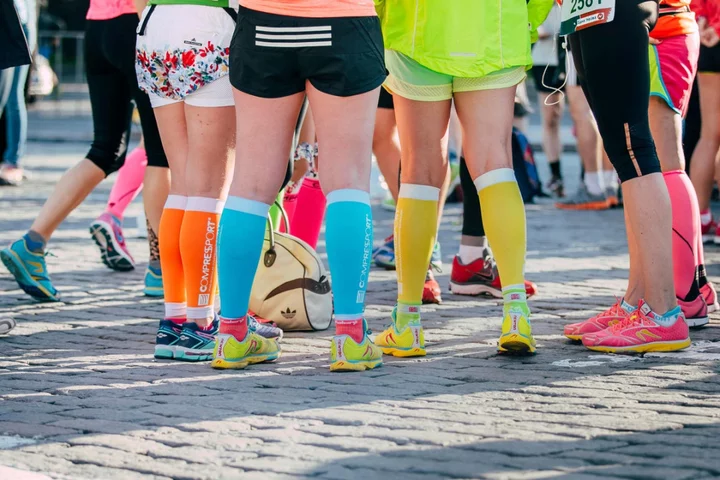
Common foot problems faced by runners – and how to solve them
Whether you’re taking on a marathon or running a 5k parkrun, your feet will make or break a run and a problem could put you off the activity for good. “Runners’ feet take a real battering, as you will know if you have recently run a marathon or even if you are new to running,” says GP Dr Gill Jenkins, an adviser to Excilor. “Feet bashing on hard ground, sweaty socks and shoes can all play havoc with your feet.” So, what problems could you face and how can you stop them hindering your progress? Blisters “Hot and sweaty feet usually mean blisters. As you start to run, your feet sweat, and the moisture in your shoes can cause friction, leading to blisters, says Joss Baldwin, Runners Need buyer. “Investing in a pair of running shoes made from breathable fabrics, with mesh vents on the uppers, boost airflow and allow any moisture to escape your shoes – reducing your risk of blisters,” “It’s also important to ensure your running shoes fit properly – shoes that are too tight or too loose increase the chance of rubbing and friction, only adding to the likelihood of blisters occurring.” Many trainer brands and sports shops such as Runners Need and ASICS offer gait analysis to help you choose the best-fitting shoes. “While breathable trainers are vital, wearing the appropriate socks will reduce your risk of soreness and rubbing. Invest in a good pair of technical run socks to keep your feet cool and wick the moisture away from your skin. Features to look out for are technical and sweat-wicking fabrics, mesh ventilation under the arch, as well as a snug fit,” says Baldwin. Athlete’s foot “Athlete’s foot is a fungal infection that occurs between the toes but can spread to the top and bottom of the foot if not treated. It can be very itchy and sore if the skin breaks, plus it spreads quickly in damp environments including running shoes but also changing rooms,” says Jenkins. It should not be ignored, and there are plenty of quick and easy treatments available in pharmacies. Ankle pain “When you’re first getting into running, foot problems can be common, but the good news is they are mostly avoidable,” says Baldwin. “Sometimes it is simply a case of getting your body used to the new activity, but all the time we see new runners in shoes that aren’t right for them. Overpronation, where your foot rolls in excessively, poor fitting and worn-out cushioning can cause a myriad aches and pains in your body. All are really easy to correct by getting a proper shoe fit and gait analysis.” There are different shoes for different activities that can protect your ankles and feet. “Everyone’s feet are different and that means everyone’s running shoe requirements are unique. Choosing the right shoe for your run can help avoid ankle pain,” says Baldwin. “If most of your training is on pavements, then road shoes are for you. With more cushioning than trail or lightweight race shoes, these will provide shock absorption to minimise your risk of injury. If you’re running through soft, muddy trails, you’re better off in a pair of trail shoes with a deep tread that offers better grip and ankle support, vital for running on uneven terrain. On pavements, however, these shoes will be uncomfortable as the studs will press into the soles of your feet and will wear away quickly.” He adds: “If you’re doing a little of each, you should consider a hybrid running shoe. These shoes work well on both roads and mixed trail conditions with a balanced mix of grip and cushioning.” Toenail problems “Toenail problems are commonly caused by a fungal infection and research for Excilor showed 49% of sufferers not aware they had a fungal nail infection,” says Jenkins. “Infections are incredibly common, especially with runners, and are also highly contagious, thriving on damp feet. Symptoms include discoloured nails and itchy and painful feet. Treat nail infections immediately as they can worsen rapidly.” Similarly, running long distances may damage the toenail itself. “The longer we run the warmer our feet get,” says Baldwin. “As they get warmer, they actually start to swell and become bigger. It is really important to take this into account when selecting your shoes. Typically we need to size our running shoes bigger than our normal shoes to stop our toes hitting the end of the shoe, which can cause our toes – and toenails – to become sore or bruised.” Read More Charity boss speaks out over ‘traumatic’ encounter with royal aide Ukraine war’s heaviest fight rages in east - follow live Paparazzi driver says Harry and Meghan chase was ‘catastrophic experience’ Regular exercise may lower risk of women developing Parkinson’s disease – study Number of children trying vaping rises 50% in a year
1970-01-01 08:00
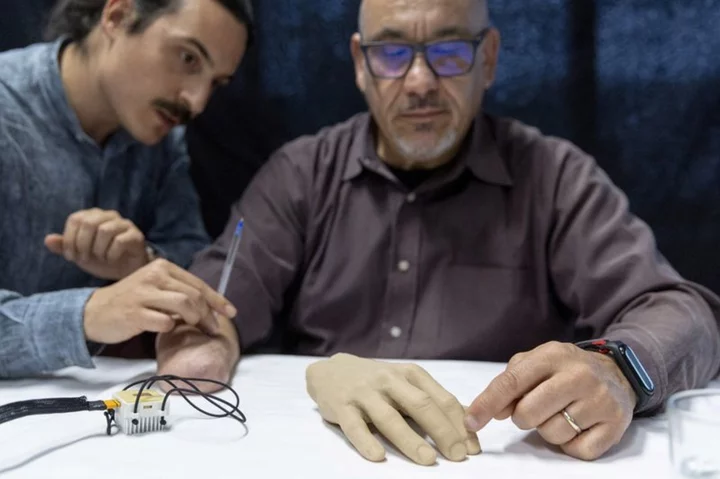
Amputees could feel warmth of human touch with new bionic technology
By Cecile Mantovani and Denis Balibouse GENEVA Fabrizio Fidati, who lost his right hand in an accident 25
1970-01-01 08:00
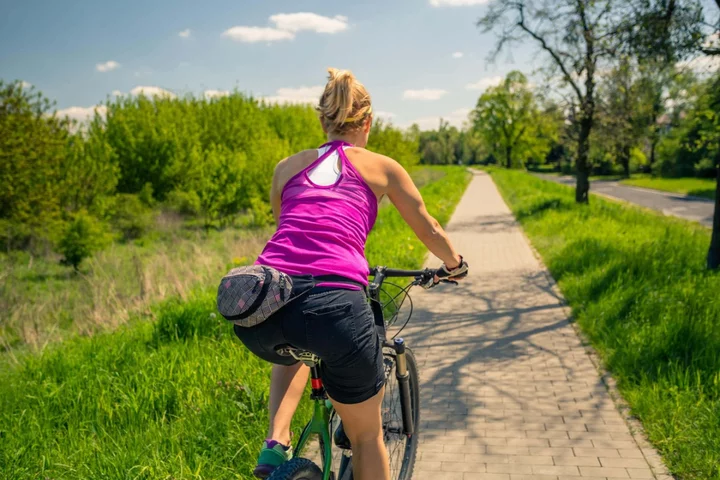
Regular exercise may lower risk of women developing Parkinson’s disease – study
Getting regular exercise such as cycling, walking, gardening, cleaning and participating in sports may decrease the risk of developing Parkinson’s disease in women, a study suggests. Women who exercised the most had a 25% lower rate of the condition when compared to those who exercised the least. The research also found that 10 years before diagnosis, levels of exercise fell at a faster rate in those with Parkinson’s than in those without, likely due to early symptoms of the disease. Experts suggest the findings support the creation of exercise programmes to help lower the risk of Parkinson’s. Our results support the creation of exercise programmes to help lower the risk of Parkinson’s disease Dr Alexis Elbaz, Inserm research centre Study author Alexis Elbaz, of the Inserm research centre in Paris, France, said: “Exercise is a low-cost way to improve health overall, so our study sought to determine if it may be linked to a lower risk of developing Parkinson’s disease, a debilitating disease that has no cure. “Our results provide evidence for planning interventions to prevent Parkinson’s disease.” Dr Elbaz added: “With our large study, not only did we find that female participants who exercise the most have a lower rate of developing Parkinson’s disease, we also showed that early symptoms of Parkinson’s disease were unlikely to explain these findings, and instead that exercise is beneficial and may help delay or prevent this disease. “Our results support the creation of exercise programmes to help lower the risk of Parkinson’s disease.” The study included 95,354 female participants, mostly teachers, with an average age of 49 who did not have Parkinson’s disease at the start of the study. The women were followed for three decades during which 1,074 of them developed Parkinson’s, and over the course of the study asked to complete up to six questionnaires. They were asked how far they walked and how many flights of stairs they climbed daily, how many hours they spent on household activities as well as how much time they spent doing moderate recreational activities such as gardening and more vigorous activities such as sports. Researchers assigned each activity a score based on the metabolic equivalent of a task (METs), a way to quantify energy expenditure. For each activity, METs were multiplied by their frequency and duration in order to get a physical activity score of METs-hours per week. For example, a more intense form of exercise like cycling was six METs, while less intense exercise such as walking and cleaning was three METs. The average physical activity level for participants was 45 METs-hours per week at the start of the study. Women in the study were divided into four equal groups of just over 24,000 people each. At the start of the study, those in the highest group had an average physical activity score of 71 METs-hours per week, while those in the lowest had an average score of 27. In the group that did the most exercise, there were 246 cases of Parkinson’s disease, compared to 286 cases in the lowest exercise group. After adjusting for factors such as place of residence, age of first period and menopausal status, and smoking, researchers found those in the highest exercise group had a 25% lower rate of developing Parkinson’s disease than those in the lowest exercise group when physical activity was assessed up to 10 years before diagnosis. They found this association remained when physical activity was assessed up to 15 or 20 years before diagnosis. The results were similar after adjusting for diet or medical conditions such as high blood pressure, diabetes and cardiovascular disease, researchers found. The findings were published in the Neurology journal. Read More Charity boss speaks out over ‘traumatic’ encounter with royal aide Ukraine war’s heaviest fight rages in east - follow live Number of children trying vaping rises 50% in a year All of the star cars to look out for in the new Fast X film Spice Girl Geri Horner ‘so proud’ of King Charles as she gives him a hug and kiss
1970-01-01 08:00
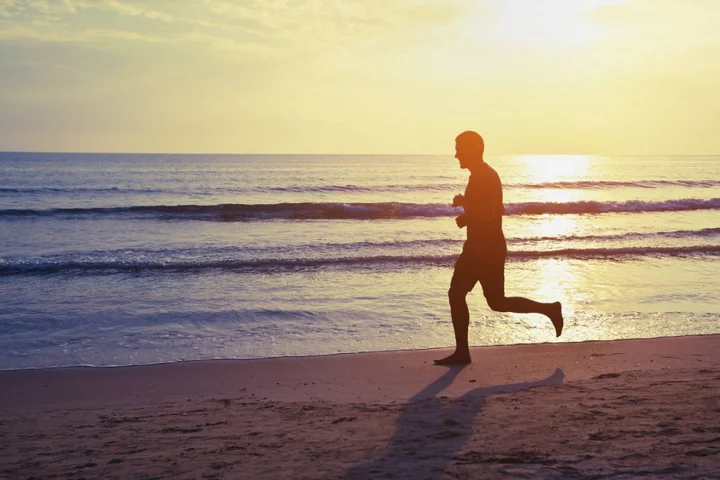
Why going sober could be the key to fitness success
Despite having ambitious fitness goals, or a desire to create a change in our lives, many of us are reluctant to give up alcohol. Surely it cannot affect our fitness routines and progress that much, just to enjoy a glass of wine, or a few beers at the pub? But, as Drinkaware explains, alcohol has a negative impact on physical performance, motor skills and brain function. So, what could going sober allow us to achieve health and fitness-wise? “Since going sober two years ago, my training performance, energy levels and mental clarity have skyrocketed,” says personal trainer Josh Davies, from Aimee Victoria Long personal training. So, how does it impact your fitness? Poor sleep and hydration Alcohol has plenty of detrimental impacts on our bodies that hinder our fitness performance. “Firstly, alcohol causes dehydration. We all know the importance of being hydrated when it comes to bodily function,” says Davies. “Secondly, alcohol has a huge effect on the quality of your sleep. Alcohol prevents the body from getting into deep and REM sleep – the part of your sleep that helps with recovery and restoration. “If you’re not getting adequate amounts of this type of sleep, you won’t recover between sessions and are unable to perform when working out.”Motivation and emotions A terrible hangover or consistent fuzzy feeling is not the best if you want to get up and go when it comes to fitness, and the result-restriction caused by drinking could be holding you back. “If you’re not seeing progression in training and you’re feeling tired from the effects of alcohol, your motivation levels are likely to wane,” says Davies. Similarly, its mood-lowering effects can make you want to do anything but workout. “Whenever I used to drink too much, I used to wake up the next day and feel awful. It would leave me not being the best version of myself and stop me from pushing myself to my limits with fitness. I’d feel low, depressed and all I’d want to do is stay in bed,” says Lauren White, addiction coach and former PT. “Alcohol would always make me depressed, I would isolate and want to be alone. I was always into fitness at a young age and knew I was good at it, but when I started getting into drinking too much, I stopped looking after my body and forgot myself and my identity,” she explains. Aids with weight loss Weight loss is not, nor should it be the only goal of a fitness boost, but if it is for you, giving up drinking may help. Nick Mitchell, CEO and founder of Ultimate Performance, says: “The problem with alcohol calories is they take priority as fuel in the body over other fuel sources, as the by-product of alcohol, acetaldehyde, is toxic and converts to acetate. “This means your body won’t start burning fat again until you burn those alcohol calories off. “In fact, alcohol consumption can be one of the major reasons that you are self-sabotaging your fitness goals. “Cracking open a can of beer or two to relieve stress – although it may seem a good idea at the time – will come back to bite you. It slashes testosterone levels in men and impairs muscle growth.“Beer, in particular, is terrible for anyone seeking to lose body fat, due to its high count of calories and its estrogenic effects. This latter point can’t be underestimated – hops are estrogenic and, as such, are the prime causes of many men, not just for beer bellies, but also for man boobs,” he explains.More time and money Quitting drinking will give you more time and money to focus that energy on goals such as strength training or distance running. “You could take up new hobbies and do things that stimulate your mind and give you that serotonin release that you feel from drinking. Furthermore, you can save a bucket load of money,” says Davies. “Alcohol is expensive and when you’re intoxicated, you lose clarity and can end up spending more and more money.” Read More Charity boss speaks out over ‘traumatic’ encounter with royal aide Ukraine war’s heaviest fight rages in east - follow live 5 of this summer’s hottest swimwear trends Teenagers with obesity should be offered weight loss drug, say experts Harry and Meghan ‘not contacted by royal family’ after car chase in New York
1970-01-01 08:00

Rachel Weisz opens up about suffering miscarriage for first time
Rachel Weisz has revealed that she suffered a miscarriage in the past, while speaking about her new series Dead Ringers. The actor, 53, discussed the negative reaction to scenes of childbirth and baby loss in the show. Weisz plays twin gynaecologists in the series, which is gender-reversed remake of the 1988 horror of the same title. Speaking to Emily Maitlis and Jon Sopel of The News Agents podcast, Weisz, who is married to fellow actor Daniel Craig, said she was “surprised” by the reaction, adding: “I was just telling this story about the female experience and it didn’t seem to have been like heightened or overdramatised. “Women had miscarriages, I’ve had a miscarriage, so you suddenly see blood coming out of your body and these are just all part of a female experience of being alive.” Weisz, a mother-of-two who prefers to keep her personal life out of the public eye, did not offer further details about when her miscarriage occurred. She continued: “I think we’re not used to seeing any of those things being represented cinematically or fictionally. So maybe this is breaking some new ground, this show.” The Favourite star also gave her thoughts on US anti-abortion activists who believe in the death penalty. “Both ends of life have different rules, it is very strange,” she said. “Children have to be born but there’s going to be no free healthcare for them. There’s no free schooling for children under the age of five. “And now every day, there seems to be more and more of a chance that you might get shot by an assault rifle at school. You can take life at the end of life; the government can choose to say you deserve to die. But at the beginning of life, a woman has no choice. How do you rationalise that?” Last month, the actor addressed the graphic birthing scenes in the first episode of Dead Ringers, describing them as “beautiful”. Speaking on BBC’s Woman’s Hour, she said: “[Writer Alice Birch] and I were really interested in showing birth in the first episode. I think we felt like it was something we don’t often see. “We’re incredibly used to seeing violence and people being killed, death, blood surrounding that. We’re almost immune to that at this point. For me, it’s a beautiful moment. It’s something we’re really interested in showing.” Weisz shares 16-year-old son Henry with former partner Darren Aronofsky and four-year-old daughter Grace with husband Craig. She married Craig, 55, in 2011 in an intimate ceremony in New York with just four guests in attendance. The James Bond star also has a daughter from his previous marriage to Fiona Loudon. Read More Grandmother praised for refusing to babysit daughter’s newborn unless she’s paid $20 an hour Denise Welch recalls losing ‘sense of reality’ from post-natal depression: ‘The most terrifying thing’ Chrissy Teigen praised for thanking team of four nannies in Mother’s Day tribute Grandmother praised for refusing to babysit daughter’s newborn for free Teenagers with obesity should be offered weight loss drug, say experts Women urged to check blood pressure – here’s what you need to know
1970-01-01 08:00
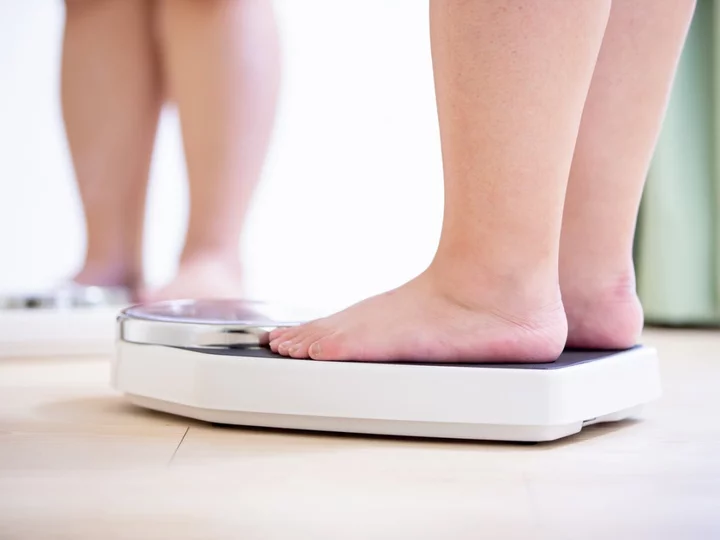
Teenagers with obesity should be offered ‘transformative’ weight loss injection, say experts
Teenagers should be offered a “transformative” anti-obesity treatment to help them lose weight, experts have said. Academics said that the weight loss injection semaglutide could help adolescents with obesity to shed pounds after a new study found an average weight loss of 40 pounds (18 kilos). Teens living with obesity were offered the semaglutide drug for more than a year in a new clinical trial. The study, published at the European Congress on Obesity in Dublin and the journal Obesity, found that 45 per cent of teens using the appetite suppressant drug were no longer classed as obese 68 weeks after starting treatment. This is compared to 12 per cent in a group who were taking “dummy” drugs – also known as placebos. Some 19.5 per cent dropped down into the “overweight” category and a quarter (25.4 per cent) were able to reduce their BMI into the “normal” weight category, the conference heard. The average reduction in body weight with semaglutide – sold under the brand name Wegovy – compared to placebo was about 40 pounds (18 kilos), researchers said. Many do very well with this medication though, and it can be life-changing for them Dr Aaron Kelly, University of Minnesota The authors of the paper conclude that “semaglutide represents an efficacious treatment option for adolescents with obesity”. But presenting the study, Dr Aaron Kelly, from the University of Minnesota Medical School in Minneapolis, USA, said that it should be taken as part of a package of measures to help teens living with the condition. He said that the earlier the treatment starts “the better” to prevent further weight gain. But he said that treatment should be taken long-term, as would be expected with other chronic conditions. Dr Kelly told reporters that there were side effects – mostly of nausea and vomiting – but these were “transient” and most dissipated over time. If you engage in treatment that’s effective, you’ll see an effect but if you take that treatment away – it’s like a rubber band, it’s going to come right back to where it started Dr Aaron Kelly “There’s a whole spectrum of outcomes when you use anti-obesity medications – some do really really well, some don’t do as well,” he said. “Many do very well with this medication though, and it can be life-changing for them. “Being a research scientist nothing brings me more pleasure than hearing the stories from the adolescents who have been struggling their entire life to manage their weight and haven’t been able to – it’s not about trying hard or not, they all try hard – this gives them a tool to help take control of their weight. “And that’s transformational for many teenagers.” He added: “I believe that health care providers should offer that as part of the comprehensive treatment approach – it’s not just one thing, it’s lifestyle therapy – which was included in this trial; it’s the use of anti-obesity medications and, for some, metabolic and bariatric surgery. “A question I get asked a lot is, ‘Is this going to solve the obesity problem? Should we just give it to everybody?’ No, it’s not going to solve the obesity problem, but it’s an important piece to the puzzle at helping to solve it especially for those who already have obesity.” Dr Kelly said that coming off the drugs would lead to weight coming back, adding: “Let’s use high blood pressure as an example, medications are commonly used and prescribed to treat high blood pressure. “And when they have prescribed, the intent of the health care provider – if (the drug is) tolerated and continues to be effective – effectively that person would stay on that medication, probably for the rest of their life. Obesity is exactly the same thing. “If you engage in treatment that’s effective, you’ll see an effect but if you take that treatment away – it’s like a rubber band, it’s going to come right back to where it started.” On when treatment should commence among teens, he added: “If obesity surfaces in childhood, it probably represents one of the most aggressive forms of obesity that we know of. “If you are a child or adolescent with obesity, you are highly likely to carry that obesity and excess adiposity into adulthood. You don’t just snap out of it. “My centre comes of the approach that the earlier the better. “And, and if medically eligible, the use of medications early is probably going to (give) the best outcomes over time because if you allow the disease to progress and the pounds to to add on over time, it gets harder and harder to draw that back. “And so conceptually, I think it makes sense to intervene early and not allow that to happen, and that probably gives the child the best shot at living a long, healthy, happy life.” Meanwhile, another study presented at the conference found that people who have shed weight may be at risk of “psychological scarring”. The paper, led by academics at the University of Liverpool, found that people who have had obesity, even if they have lost weight, could be at risk. Read More Gaining weight before 30 raises cancer risk decades later Artificial sweeteners do not help you lose weight, WHO warns How to talk to kids about weight and healthy eating Charity boss speaks out over ‘traumatic’ encounter with royal aide Ukraine war’s heaviest fight rages in east - follow live
1970-01-01 08:00

Fertility app fined $200,000 for leaking customers health data
The company behind a popular fertility app has agreed to pay $200,000 in federal and state fines after authorities alleged that it had shared users' personal health information for years without their consent, including to Google and to two companies based in China.
1970-01-01 08:00
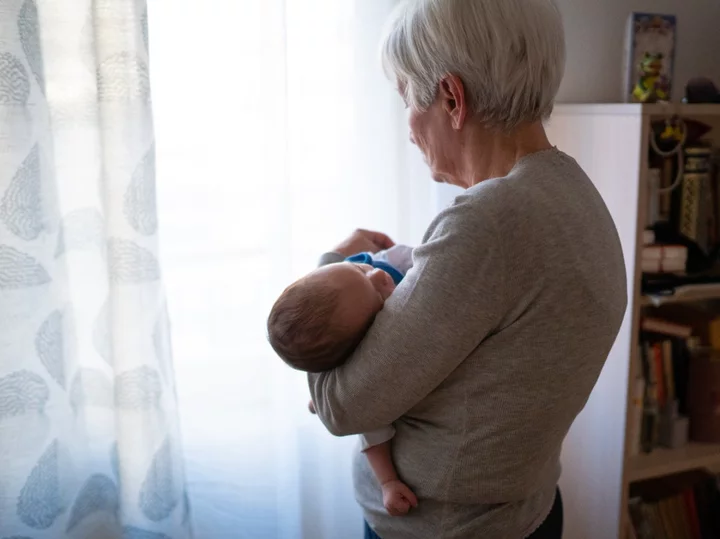
Grandmother praised for refusing to babysit daughter’s newborn unless she’s paid $20 an hour
A 29-year-old woman was in for a rude awakening when she asked the internet if her mother was in the wrong for refusing to babysit her newborn for free. “Am I the a**hole if my mom refused to help me take care of my baby while I go back to work?” u/erika_urrrika asked the popular Reddit forum. In her post, the new mother wrote that both she and her partner work full-time and cannot afford to have one parent stay home with their baby. The Redditor explained that their jobs don’t allow them to work from home, and they wanted to avoid spending money on childcare. In addition to being the breadwinner of the household, she is also saving money to pay off credit card debt and move to a bigger apartment. However, the grandmother refused to look after her grandchild for free, noting that she was “too old” and had “already raised her kids”. “Mind you, my mom is 64, has been a homemaker/stay-at-home-mom since 1992, and hasn’t been part of the workforce since then,” the daughter wrote. “She also added that if I really wanted this baby, then maybe I should have thought about staying home like she did to take care of it while my partner goes to work and provides for us like a ‘traditional’ family, and that if she any my dad were able to work it out, so can we.” When the Reddit user detailed her financial situation to her mother, she asked to be compensated $20 an hour for each hour she looks after her grandchild, including late fees for pickup. “So, am I the a**hole for wanting my mom, who again is at home all day long (trust me, she does not do anything besides watch TV and cook meals), to take care of my baby for free while me and my partner try to fix our finances?” she asked. In the comments, many Reddit users called the daughter “entitled” for expecting her mother to take care of her child for free. “Sorry to be blunt and rude but maybe don’t have a child if you can’t afford to take care of them,” replied one person. “And if your plan was always to go back to work you should have discussed that during the pregnancy with your mom.” “Your mother is under no obligation to babysit for you,” another user said. “Why are you having a child you don’t seem to know what to do with? And why have you not worked all this out before now?” A third person wrote: “Your mom is in no way obligated to care for YOUR BABY. It’s generous of her to be willing to do it for pay, and you have the gall to be mad she won’t do it for free? She is entitled to spend her life and free time however the hell she wants. It’s not her fault you’re in debt and decided to have a baby you can’t afford. The only thing she may have done wrong at some point along the line is raise you to be this horribly entitled.” “You chose to have a child, not your mother. Your mother isn’t a free babysitter,” another said. “She is right, she raised her children. Her babysitting on occasion would be kind and appreciated but you sound entitled thinking you are owed childcare.” One person simply commented, “You’re not the a**hole for wanting her too. But you’re the a**hole for expecting her to.” According to Sittercity, the average hourly rate of babysitters in the US in 2023 is $18.50 per hour, while the average hourly rate of nannies who “typically work on a full-time or set schedule basis” is $20 an hour. This isn’t the first time a babysitter has caused a stir on Reddit. Recently, a woman sparked a debate after revealing that she asked a family who cancelled on her babysitting services last minute to pay her half of the $840 she planned to charge them. The babysitter told Reddit’s AITA forum that she usually charges a “flat rate of $100 a night” while babysitting overnight. “Overall, the price for those three days was going to be $840,” she said. But when she received a text from the parents cancelling her babysitting services, she explained that she was “out three days pay”. In response to the last-minute cancellation, she asked the customer for $480, the “minimum [she’d] make at work in those three days”. She said the mother declined the request and said she was being “ridiculous”. While the babysitter noted that she and the family didn’t have a contract, “which in hindsight was stupid” and that “legally they don’t have to pay” her, she still felt that the right thing for the family to do was pay her. Read More Woman questions whether it was ‘selfish’ to refuse boyfriend’s request for $5,000 loan Babysitter asks family to pay half of $840 bill after they cancelled last minute People divided over whether you should switch tables in a restaurant if seated next to a crying baby Woman questions whether it was wrong to refuse boyfriend’s request for $5,000 loan Women urged to check blood pressure – here’s what you need to know Denise Welch remembers ‘losing sense of reality’ while facing post-natal depression
1970-01-01 08:00
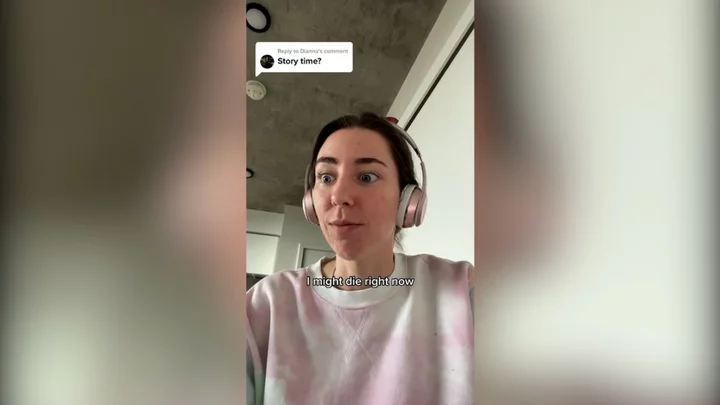
Ex-vegan claims quitting diet ‘saved her life’
An former vegan whose hair started to fall out in chunks has claimed that eating meat “saved her life”. Kai-Lee Worsley, who is originally from Edmonton, Alberta, Canada, became vegan aftermoving to Santa Ana, California, in 2018. After moving in with a group of vegans, she learnt about factory farming, which is controversial due to the cramped and stressful conditions endured by livestock. She was then convinced to try veganism herself. “What convinced me is the way animals were treated. I didn’t know how animals were treated in factory farms. I didn’t know factory farms existed,” she said. Kai-Lee stopped eating all products derived from animals and started eating protein-rich vegetables, such as beans and legumes. She also used supplements to counter the lack of proteins found in meat. But six months into her new diet, she started to feel unwell. Her hair started to fall out, her fingernails became brittle and she found it difficult to stand up. “I was extremely tired all the time. I couldn’t form coherent thoughts,” she said. “I would just lie in bed multiple times a week and I would spend all day in bed if I could. “My nails were breaking all the time. My hair was falling out. I have thin hair anyway but my hair was just coming out in chunks.” Kai-Lee stuck to the diet until June 2019 when her symptoms became too intense to ignore. Less than a year after becoming vegan, Kai-Lee started eating meat again and has credited it with “literally [saving] my life”. ”Now I eat basically the same thing as when I was a vegan except I have steak three times a week. I’ve swapped meat substitutes for meat. It has literally saved my life,” she said. Despite feeling the benefits of eating meat, Kai-Lee morally struggled to abandon her vegan diet. Kai-Lee said: “I really thought veganism was something I wanted to do for the rest of my life. I even saw myself as an activist. “After I ate meat, I saw myself as a fraud. I even had a V tattoo in my ear, which stood for vegan. I was at that point when I was so indoctrinated that it was really hard to go back. “I didn’t tell anyone at the beginning. I was worried what they would think about me.” She concluded: “I think when you’re so indoctrinated in something it’s really hard to back away, but I’m glad that I was able to do it in time.” Read More Janey Godley shares heartbreaking cancer update Gaining weight before 30 raises cancer risk decades later Teacher, 25, rushed to hospital with stomach ache diagnosed with terminal cancer Pensioner, 85, shares the simple switch that’s helped him to do 650,000 press-ups How to check if you have skin cancer: Symptoms and signs to look out 6 mouth cancer symptoms everyone should know
1970-01-01 08:00
